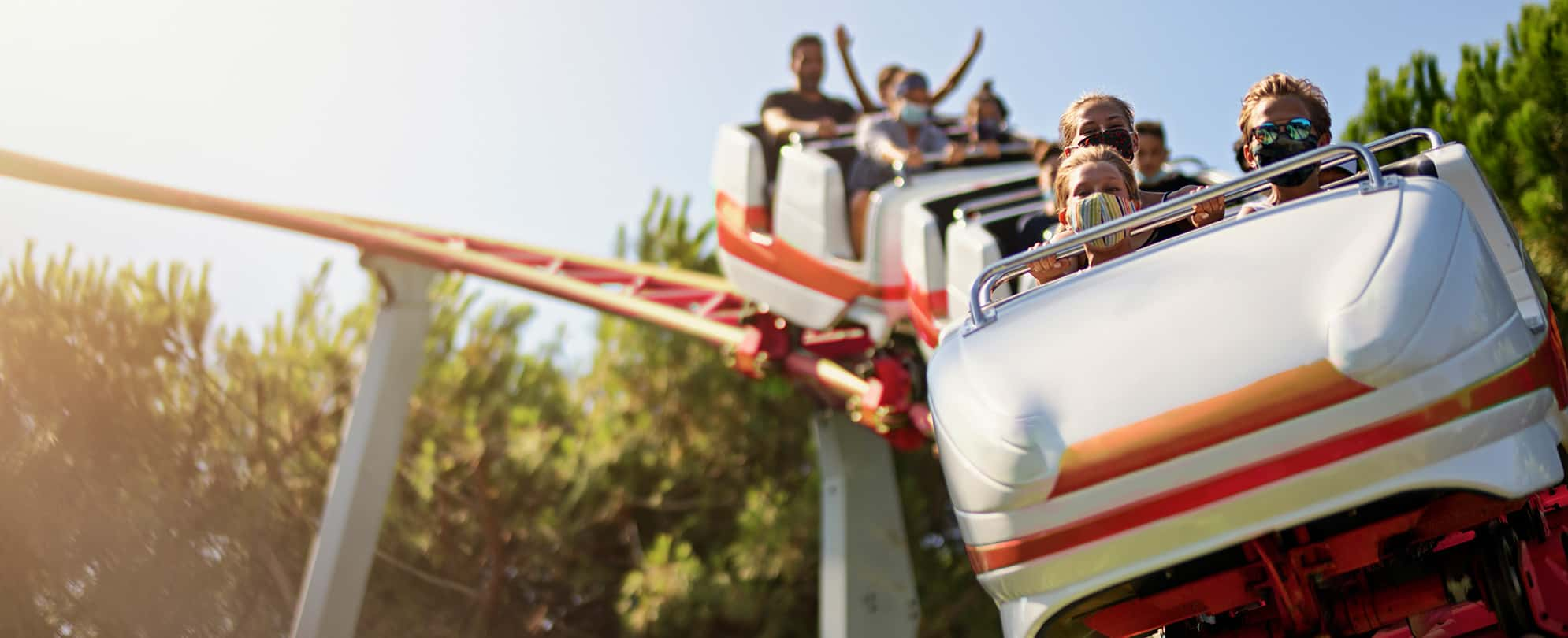

With the coronavirus throwing a wrench into travel plans, how can you safely enjoy a day at a theme park these days? While Disney, Universal, and other parks are doing their part to keep guests safe against the backdrop of COVID-19, vacationers play a key role, too.
Here’s what you need to know:
Before making plans, review the latest information on your chosen park. Some have reopened (like in Florida) while others remain closed (like in California). For those parks that are open, many have changed their operating hours — some limiting which days they’re open, others opening later and/or closing earlier.
In their effort to limit park capacity and increase social distancing, some parks now require guests to make advance reservations online. This might require both a paid park admission and a park reservation for the same park on the same day.
While it still makes sense to bring typical theme park sundries (hat, sunscreen, bottled water, etc.), you’ll also want to pack health essentials like hand sanitizer, antibacterial wipes, and masks. While the parks will likely have ample supply of handwashing stations and hand sanitizer, bring your own.
Many parks offer a smartphone app. Download it for up-to-the-minute details regarding park policies, procedures, operating hours, and daily offerings.
You’ll probably undergo a temperature screening before you’re allowed park entry. And you’ll need a mask or acceptable face covering to wear in the park. If you don’t have a mask, the park might provide a free, disposable one — but don’t count on it. No mask? No entry.
Look for guest communications everywhere — from arrows pointing to handwashing stations to wear-your-mask reminders to social distancing markers in queue lines. Most parks make it easy for you to follow the rules.
Whether you’re buying lunch or purchasing a souvenir, avoid paying with cash. While parks will likely accept cash, they’re promoting cashless and contactless payment options such as credit/debit cards, Apple Pay, Google Pay, etc. You’ll also find increased mobile food ordering options to reduce face-to-face interactions and eliminate touching menus.
Parks are temporarily pausing, modifying, or limiting many offerings. For example, parks might suspend shows and events that draw crowds, like fireworks and parades. Valet parking might not be available. Playgrounds might be shuttered. Plexiglas might be in place at dining and retail locations. Character meet-and-greets might happen from afar. Remember, parks implemented these measures to ensure social distancing and keep both guests and employees safe.
Bottom Line: Know before you go, manage your expectations, and follow the rules to safely enjoy your next theme park adventure.